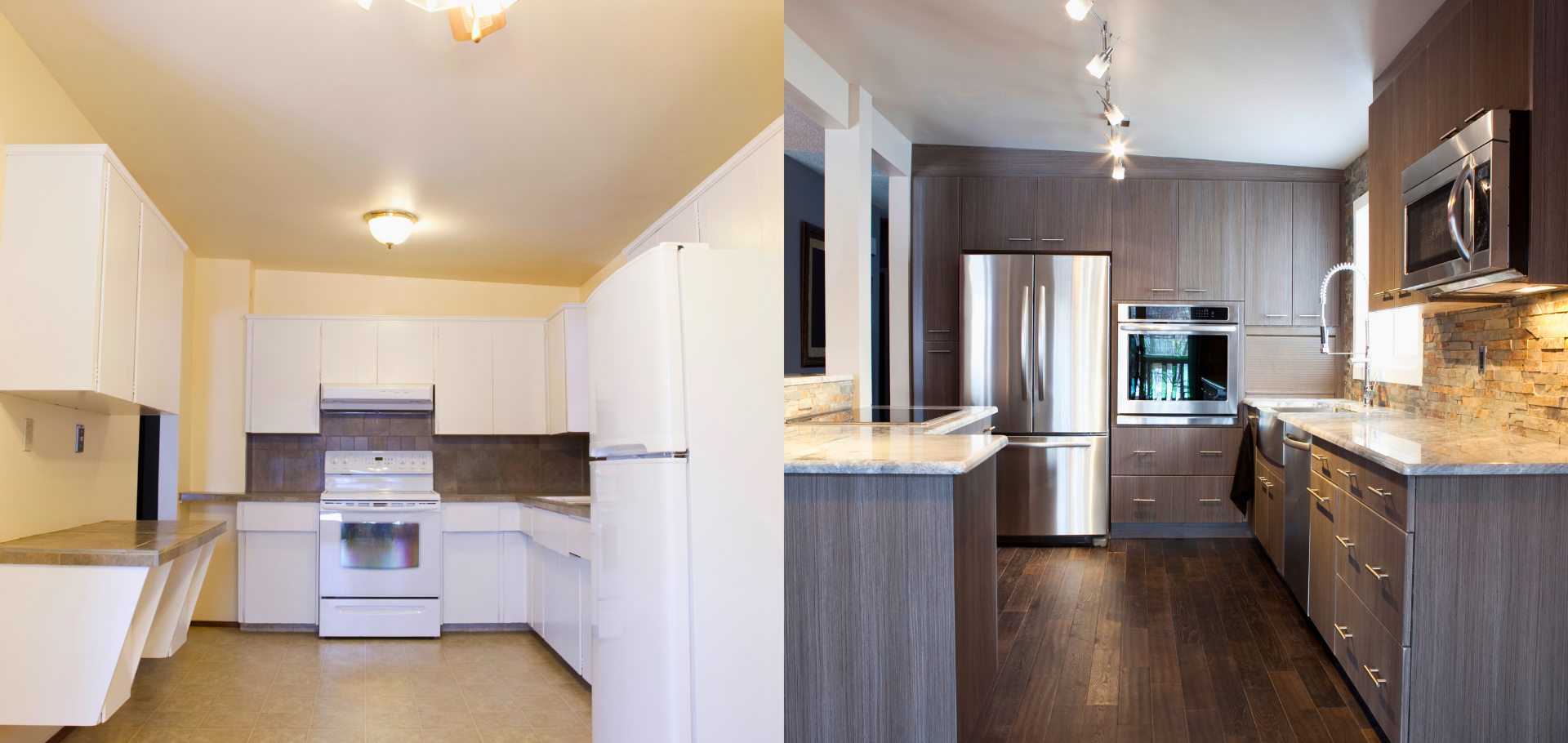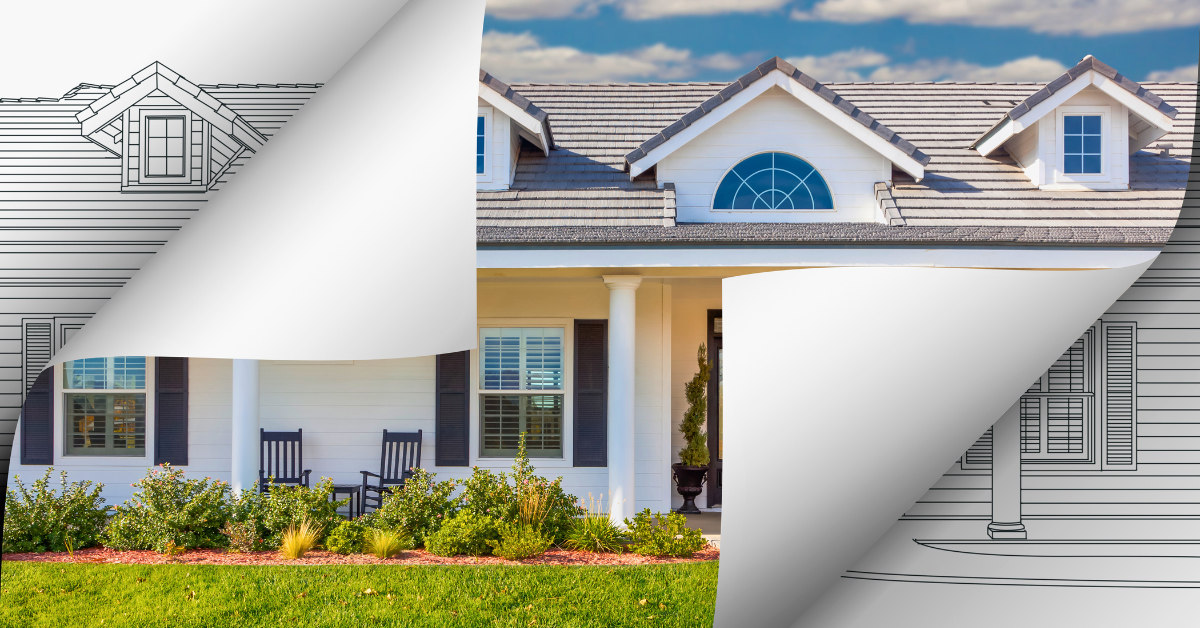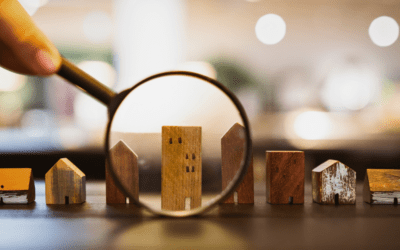Flipping a house is one of the most popular and profitable ways to invest in real estate. It involves buying a property, fixing it up, and selling it for a higher price within a short time frame. Sounds easy, right?
Well, not quite. Flipping a house is not a simple or risk-free endeavor. It requires a lot of research, planning, budgeting, skills, and hard work. And even then, you might not make the profit you expected or sell the house as fast as you hoped.
So, how do you flip a house successfully in 2024? What are the best practices and tips to follow? And what are the common pitfalls and mistakes to avoid?
In this blog post, we will answer these questions and more. We will show you how to flip a house in 2024, step by step, from finding the right property to closing the deal. We will also share some of the latest trends and challenges in the real estate market that you need to be aware of.
Ready to learn how to flip a house in 2024? Let’s get started!
Step 1: Find the Right Property
The first and most important step in flipping a house is finding the right property. You want to look for a house that has a lot of potential but also needs some work. You don’t want to buy a house that is too expensive, too damaged, or too outdated.
The ideal house for flipping is one that:
- Is located in a high-demand area where houses sell quickly and for a good price
- Has a solid structure and foundation, but needs cosmetic improvements
- Has a layout and features that appeal to modern buyers
- Has a clear title and no liens or legal issues
- Is priced below the market value and leaves enough room for profit
To find such a house, you need to do your homework. You need to research the local market trends, the average time to sell a house, the median home price, and the buyer preferences in your area. You also need to network with real estate agents, wholesalers, contractors, and other investors who can help you find good deals.
You can also use online tools and platforms to search for properties, such as Zillow, Trulia, Realtor.com, Auction.com, and Foreclosure.com. These sites can help you filter and compare properties based on various criteria, such as location, price, size, condition, and features.

Step 2: Analyze the Deal
Once you find a potential property, you need to analyze the deal. You need to estimate how much it will cost you to buy, renovate, and sell the house, and how much profit you can make from it.
To do this, you need to follow a simple formula:
Profit = ARV – (Purchase Price + Renovation Costs + Holding Costs + Selling Costs + Taxes)
Where:
- ARV stands for After Repair Value, which is the estimated value of the house after you fix it up. You can calculate the ARV by looking at the recent sales of similar houses in the same area.
- Purchase Price is the amount you pay to buy the house, including any fees, closing costs, and financing charges.
- Renovation Costs are the expenses you incur to repair and improve the house, such as materials, labor, permits, and inspections.
- Holding Costs are the expenses you incur to maintain the house while you own it, such as mortgage payments, property taxes, insurance, utilities, and maintenance.
- Selling Costs are the expenses you incur to sell the house, such as agent commissions, staging, marketing, and closing costs.
- Taxes are the taxes you have to pay on your profit, such as income tax, capital gains tax, and self-employment tax.
The goal is to make sure that your profit is positive and high enough to justify the risk and effort involved in flipping the house. A good rule of thumb is to aim for at least a 10% to 15% return on investment (ROI).
Step 3: Finance the Deal
The next step is to finance the deal. You need to have enough cash or credit to buy and renovate the house. There are different ways to finance a house flip, such as:
- Cash. This is the simplest and cheapest way to finance a house flip, as you don’t have to pay any interest or fees. However, you need to have a lot of cash on hand, which can limit your options and opportunities.
- Hard Money Loans. These are short-term loans from private lenders that are based on the value of the property, not your credit score. They are easy to get and fast to close, but they have high interest rates and fees, and strict terms and conditions.
- Private Money Loans. These are loans from individuals, such as friends, family, or other investors, who are willing to lend you money for a house flip. They are more flexible and negotiable than hard money loans, but they can also involve more risk and complications.
- Home Equity Loans. These are loans that use your existing home equity as collateral. They have lower interest rates and longer repayment periods than hard money loans, but they also reduce your home equity and put your home at risk of foreclosure.
- Partnerships. These are arrangements where you team up with another person or entity who provides some or all of the financing for the house flip, in exchange for a share of the profit. They can help you leverage your resources and skills, but they also require trust and communication.
The best way to finance a house flip depends on your situation, goals, and preferences. You need to weigh the pros and cons of each option and choose the one that suits your needs and budget.
Step 4: Renovate the House to Flip the House
The fourth step is to renovate the house. You need to transform the house from a fixer-upper to a dream home that attracts buyers and commands a high price. You need to plan, execute, and manage the renovation project efficiently and effectively.
To do this, you need to:
- Create a renovation plan. You need to decide what repairs and improvements you will make to the house, how much they will cost, and how long they will take. You need to prioritize the most important and profitable tasks, such as fixing structural issues, updating systems, and enhancing curb appeal. You also need to avoid over-improving the house or making unnecessary changes that won’t add value or appeal to buyers.
- Hire a contractor. Unless you have the skills and time to do the work yourself, you need to hire a reliable and reputable contractor who can handle the renovation project. You need to find a contractor who has experience in flipping houses, who can work within your budget and timeline, and who can deliver quality work. You also need to communicate with the contractor regularly, monitor the progress, and address any issues or changes that arise.
- Follow the rules and regulations. You need to comply with the local codes and ordinances that govern the renovation of houses. You need to obtain the necessary permits, inspections, and approvals for the work you do. You also need to follow the safety and environmental standards and practices that protect you, your workers, and your neighbors.
The key to a successful renovation is to be smart, efficient, and cost-effective. You want to complete the project as quickly and as cheaply as possible, without compromising the quality or the value of the house.

Step 5: Sell the House
The final step is to sell the house. You need to market and showcase the house to potential buyers, negotiate the best deal, and close the sale. You need to make sure that you sell the house for more than you invested in it, and that you sell it fast.
To do this, you need to:
- Price the house right. You need to set a realistic and competitive price for the house, based on the current market conditions, the ARV, and the demand. You don’t want to price the house too high, as it will scare away buyers and prolong the selling process. You also don’t want to price the house too low, as it will reduce your profit and leave money on the table.
- Hire a real estate agent. Unless you have the experience and skills to sell the house yourself, you need to hire a professional and experienced real estate agent who can help you sell the house. You need to find an agent who specializes in selling flipped houses, who knows the local market and the target buyers, and who can market and promote the house effectively. You also need to agree on the commission and the terms of the contract with the agent.
- Stage and show the house. You need to prepare and present the house in the best possible way to attract and impress buyers. You need to clean, declutter, and depersonalize the house, and make it look spacious, bright, and inviting. You also need to add some finishing touches, such as fresh paint, flowers, and accessories, that highlight the features and benefits of the house. You also need to schedule and conduct open houses and private showings, and provide feedback and follow-up to the interested buyers.
Negotiate and close the deal. You need to handle the offers and counteroffers, the contingencies and inspections, the appraisals and financing, and the closing and settlement. You need to be flexible and reasonable, but also firm and confident. You need to protect your interests and rights, but also respect and accommodate the buyer’s needs and wants. You also need to have a lawyer or a title company to handle the legal and financial aspects of the transaction. The key to a successful sale is to be prepared, proactive, and persuasive.
Conclusion
Flipping a house in 2024 is not a walk in the park, but it is also not impossible. With the right strategy, skills, and resources, you can turn a rundown property into a profitable investment.
In this blog post, we showed you how to flip a house in 2024, step by step, from finding the right property to selling the house. We also shared some of the best practices and tips to follow, and some of the common pitfalls and mistakes to avoid.
We hope you found this blog post helpful and informative. If you are interested in flipping a house in 2024, or if you have any questions or comments, please feel free to contact us. We would love to hear from you and help you with your real estate goals. Read about one of the best markets to fix and flip in during 2024 in this post.
Thank you for reading, and happy flipping





Dàn Dealer chuyên nghiệp đến từ Châu Âu và Châu Á chắc chắn sẽ mang đến cho bạn những giây phút thăng hoa giải trí tuyệt vời. telegram 888slot 200+ Studio được phát sóng trực tiếp mỗi ngày cho bạn thoải mái tham gia và nhận thưởng bonus với hoa hồng hấp dẫn khi giành chiến thắng. TONY12-19
Với tỷ lệ cược hấp dẫn, cập nhật liên tục và nhiều loại kèo đa dạng, bạn sẽ cảm thấy hồi hộp và phấn khích trong từng trận đấu. slot365 login Các trận đấu được cập nhật trực tiếp giúp bạn theo dõi và điều chỉnh cược một cách dễ dàng. TONY12-26
888slot hiện là đối tác chiến lược của nhiều nhà phát hành game danh tiếng toàn cầu, minh chứng cho tầm vóc và tiềm lực tài chính hùng mạnh của thương hiệu. TONY01-06S
Một trong những yếu tố giúp 888slot thu hút và giữ chân người chơi lâu dài chính là hệ thống chính sách khuyến mãi hấp dẫn. Những chương trình khuyến mãi không chỉ mang lại cơ hội gia tăng số dư tài khoản mà còn giúp bạn có thêm động lực tham gia nhiều trò thú vị hơn. Dưới đây là một số loại khuyến mãi tiêu biểu mà khách hàng có thể nhận được khi tham gia vào nhà cái. TONY01-09
Cho dù bạn là một khách chơi mới hoặc đã chơi lâu năm, hệ thống game của code 188v luôn đáp ứng được nhu cầu của từng người chơi. Tham gia vào những trò chơi hấp dẫn, bạn sẽ có cơ hội giải trí, thư giãn và đặc biệt là có thể gặt hái được những chiến thắng lớn nếu may mắn đứng về phía mình. TONY01-16
Chào mừng bạn đến với 888slot trang chủ – một trong những thương hiệu cá cược trực tuyến dễ nhận biết và uy tín nhất trong ngành giải trí. 888slot trang chủ tự hào khẳng định vị thế là điểm đến hàng đầu, mang đến những trải nghiệm hoàn hảo, chuyên nghiệp và chất lượng cao cho mọi người chơi. Với sự tin tưởng mạnh mẽ từ hàng triệu khách hàng, chúng tôi cam kết xây dựng một môi trường giải trí an toàn, minh bạch và đầy kịch tính. TONY01-29O